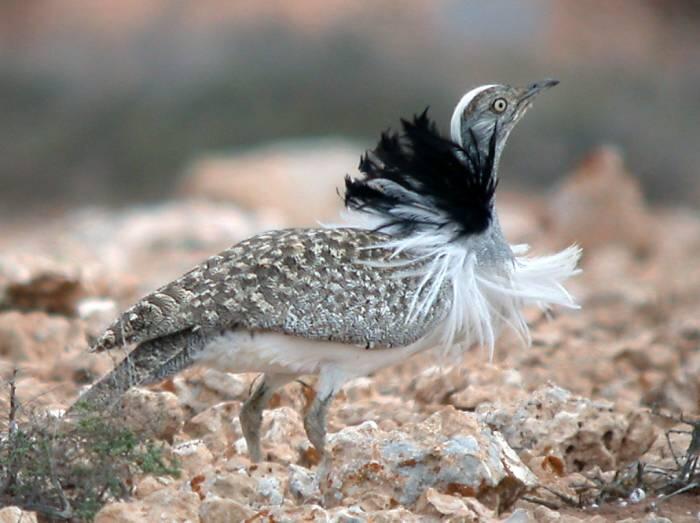When the Supreme Court banned the hunting of houbara; the decision drew criticism from one circle and appreciation from another circle. The Supreme Court was asked to review its decision on hunting and after enough evidences were provided about the benefits of sustainable hunting, the court had no other choice but to reverse its decision.
The prosecution was of the opinion that due to excessive hunting by the Arab royals, houbara specie was on the brink of extinction. The ban was lifted after Supreme Court heard the other side of the story.
Each year, houbara migrates from extreme cold weather in Siberia to areas with moderate temperature. These areas include Pakistan, Afghanistan, Iran, Sri Lanka and India. Arab princes come to Pakistan for houbara hunting. During the ban, illegal hunting went rampant and houbara bustards were smuggled for as high as 90,000 rupees per bird. India has time and again invited Arab royals to hunt in their country but due to security fears and the ever changing political scenario, Arabs have not invested anything in India for hunting.
When nobody is willing to invest in Pakistan, there is hardly any tourism left and no top international cricket team agrees to play here; we should consider these Arab hunting expeditions a silver lining. Through this, Pakistan receives billions of rupees in development projects. But the million-dollar question here is; should we let houbara’s population suffer? Arab royals, especially from UAE, do not only hunt houbara bustard but they also invest millions of dollars for its conservation. According to International Fund for Houbara Conservation, Abu Dhabi has been actively taking part in houbara conservation and since 1996 it has bred and released more than 248,000 houbaras and still continues to do so.
Thousands of houbara birds have been released from the captivity of smugglers. This proves that the overall population of houbara bustard is growing.
Apart from houbara specie, UAE is also focusing on conservation of declining falcon and deer population. Thousands of falcons have been rescued from captivity of smugglers and poachers and released under Sheikh Zayed Falcon Release Program in Pakistan. On the instructions of Sheikh Zayed bin Sultan Al Nahyan, a deer breeding and conservation center was inaugurated in Rahim Yar Khan in 1997. It has now more than five thousand Chinkara Gazelles at present.
Saudi Arabia, Dubai, Qatar, Bahrain and Kuwait have generously supported Pakistan in conservation and propagation of houbara bustard. Undeniably thousands of people have gotten jobs due to the projects initiated by these middle eastern countries. Millions of Pakistanis, living in middle east, send billions of rupees as remittance to Pakistan annually. The baseless propaganda on houbara hunting is actually being set out to hurt our economy, so as to provide Arabs with an alternative, in India, which should be understood by patriotic countrymen.
Source: DailyTimes











